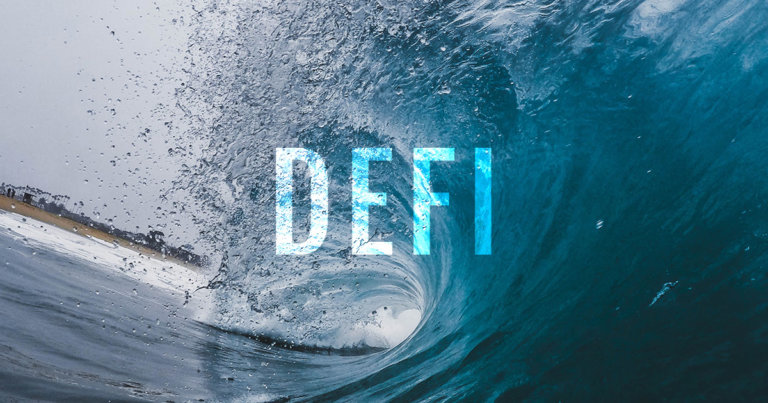 ‘DeFi has unleashed a wave of innovation,’ says a U.S. Federal Bank paper
‘DeFi has unleashed a wave of innovation,’ says a U.S. Federal Bank paper ‘DeFi has unleashed a wave of innovation,’ says a U.S. Federal Bank paper
University of Basel professor Fabian Schär argues that Ethereum's decentralized finance sector "may lead to a paradigm shift in the financial industry."

Photo by Jeremy Bishop on Unsplash
Ethereum’s booming decentralized finance (DeFi) sector has the potential to become a “truly open, transparent, and immutable” infrastructure that can result in a “paradigm shift in the financial industry,” according to a paper published by the Federal Reserve Bank of St. Louis earlier this week.
DeFi is the collective name for an intricately intertwined network of decentralized applications (DApps) and platforms based on Ethereum’s smart contracts. The main idea behind the ecosystem is to create a financial system where users themselves can lend, borrow, and bank funds without the need for intermediaries such as banks.
“A wave of innovation”
Per the paper, titled “Decentralized Finance: On Blockchain- and Smart Contract-Based Financial Markets” and written by University of Basel professor Fabian Schär, DeFi “has unleashed a wave of innovation” over the past couple of years. Schär wrote:
“DeFi offers exciting opportunities and has the potential to create a truly open, transparent, and immutable financial infrastructure. Because DeFi consists of numerous highly interoperable protocols and applications, every individual can verify all transactions and data is readily available for users and researchers to analyze.”
At the same time, he pointed out that such reliance on independent users is also DeFi’s Achilles’ heel since many dapps’ security leaves much to be desired. As CryptoSlate reported, hacks and losses of funds are common in DeFi because it is literally open to anyone—including highly-skilled hackers.
DeFi hacks galore
Just a month ago, for example, DeFi project “ForceDAO” got hacked in mere hours after the launch, allowing attackers to steal nearly $400,000 worth of its tokens. More recently, Binance Smart Chain-based DeFi project Uranium Finance lost $50 million due to an exploit—because its developers couldn’t even copy and paste code from other projects properly.
Still, if DeFi can overcome its security issues and risks, the sector has a great potential to reinvent the finance industry, Schär argued.
“If these issues can be solved, DeFi may lead to a paradigm shift in the financial industry and potentially contribute toward a more robust, open, and transparent financial infrastructure,” he wrote, concluding, “Atomic swaps, autonomous liquidity pools, decentralized stablecoins, and flash loans are just a few of many examples that show the great potential of this ecosystem.”
Meanwhile, DeFi continues to grow exponentially—and shows no signs of slowing down so far.

























































































